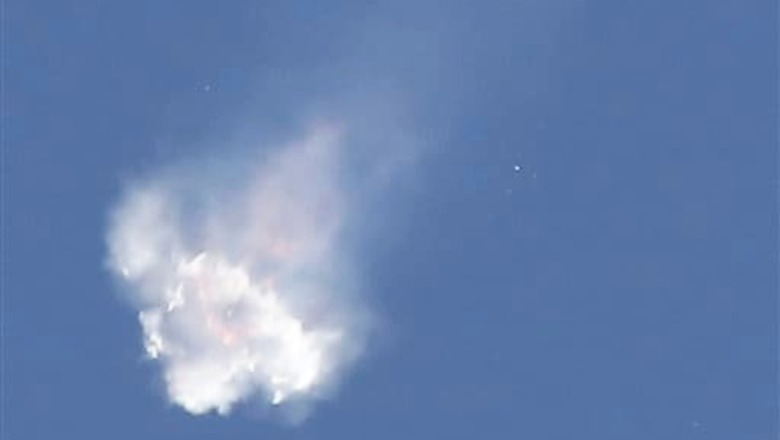
views
Washington: SpaceX on Thursday announced plans to launch its Falcon 9 on December 19, its first mission since a massive explosion after liftoff destroyed the rocket and its space station cargo six months ago.
SpaceX CEO Elon Musk wrote on Twitter that the company is preparing for a static fire - an engine test on the launch pad at NASA's Kennedy Space Center in Cape Canaveral, Florida - on December 16, followed by "launch about three days later."
The Falcon rocket will carry 11 satellites for the US company Orbcomm into low-Earth orbit, a company spokesman told AFP.
The spokesman did not say when SpaceX planned to begin sending cargo to the International Space Station again.
SpaceX's only competitor in the commercial resupply industry is Orbital ATK, which also suffered a major setback when its Antares rocket exploded after launching from Wallops Island, Virginia in October 2014.
Orbital ATK launched on Sunday its unmanned Cygnus cargo ship to the ISS, this time aboard a United Launch Alliance Atlas V rocket while it upgrades the Antares, which previously used a reconditioned Ukrainian rocket engine.
The Falcon 9 exploded on June 28, just over two minutes after launching from Cape Canaveral with its Dragon cargo ship loaded with supplies for the astronauts living in space.
Musk said the blast was due to a faulty strut.
The accident was a blow to the California-based company, which was the first commercial outfit to send a cargo craft to space under a $1.6 billion contract with NASA.
The Falcon 9 rocket that is scheduled to fly December 19 is a new version that is 30 percent more powerful and designed to improve the controlled landing of the rocket’s first stage, a mission that SpaceX has been attempting to refine in the hope of one day making rockets as reusable as airplanes.
SpaceX has tried multiple times to land its rocket upright on a floating platform in the Atlantic Ocean, without success.
For this next launch, SpaceX said it plans to attempt a touchdown on land for the first time.
Amazon founder Jeff Bezos, an Internet entrepreneur who like Musk also owns a rocket company, announced on November 24 that he had successfully landed his New Shepard rocket after a suborbital flight.
While Bezos touted the achievement, Musk and other experts pointed out that it would have been much easier to control the landing of a rocket that flies lower in altitude than the first stage of the Falcon 9.
Once rockets do become reusable, analysts say the practice will save millions of dollars in equipment and launch costs.




















Comments
0 comment